Russian Revolution
by Devender
0 2913
At the beginning of the 20th century, Russia was governed by Czar, Nicholas II who was an autocrat and most people didn't like him. When Japan defeated Russia in 1905, the criticism of the Government reached new heights.
- On 9th January 1905, a group of peaceful workers with their families was fired upon
- They were on their way to the winter palace to present a petition to the Czar
- More than a thousand people were killed and thousands got wounded
- This day is known as Bloody Sunday
- It began a lot of disturbances all through Russia
- Even sections of army and navy started revolted
- How did Nicholas survive the Revolution of 1905?
- Failure of Land reforms:
- Delayed Industrialization:
- Government Crushing:
- Corrupt Royal Family:
- Failure in War:
- The people should totally understand that revolution is necessary and be ready to sacrifice their lives for it
- The existing government should be in a state of crisis to overthrow it
- Importance of the Russian Revolution:
- It ended autocracy, aristocracy, and the power of the church
- It brought power to the working class
- USSR(Union of Soviet Socialist Republic) emerged
- It ended discrimination based on race, color, and sex
- Education was given priority
- It made the right to work a fundamental right and made it duty of government to provide employment
- Private property for production was ended
- Motive of private profit was eliminated from production
- Communist International:
It forced Czar to take some decisions which included granting of an elected government. This was all ineffective and didn't help the cause of the Russian people.
The people who were against him had no leadership and they were not united. Most of the army remained loyal to him and Nicholas was ready to make compromises whenever any critical situation came.
Russian Revolution of 1917
The promises made by Nicholas were all bogus and people realized it. So, sooner or later a revolution was bound to happen. There were many major causes that lead to the Russian Revolution:
Serfdom came to an end in 1861 but the situation of the peasants didn't get any better. They had very small landholding and no capital to develop.
More than 50% of the capital was coming from outside Russia and they didn't care about the welfare of workers. Russian capitalists were competing with foreigners by reducing the wages of workers. Workers had no political rights and after the bloody Sunday incident, many industrial strikes broke out.
The government hired special police who were eliminating revolutionaries.
Czar Nicholas believed in the divine rights of the King but only nobility and upper classes supported him. A large number of scandals of the Royal family unfolded which created a lot of anger in the lower classes.
The failure of Russia in World War I made revolution certain. Nicholas made a lot of tactical mistakes which led to the death of more than 6 lakh Russian soldiers and cost a lot of wealth. It made the bread very scarce and everyone turned against Nicholas from Aristocracy, Army, Government to Industrialist, etc.
Rise of Revolutionary Parties
An earlier movement, the Social Democratic Labour Party developed two groups: Bolsheviks (Majority) and Mensheviks (Minority). Vladimir Lenin was a leader of Bolsheviks & Marxist. He wanted a small party of professionals who would work full-time for bringing revolution. He also wanted to work with peasants and involve them to bring revolution.
On the other hand, Mensheviks had different beliefs. They believed Revolution can not work until the country is industrialized and more industrial workers over peasants.
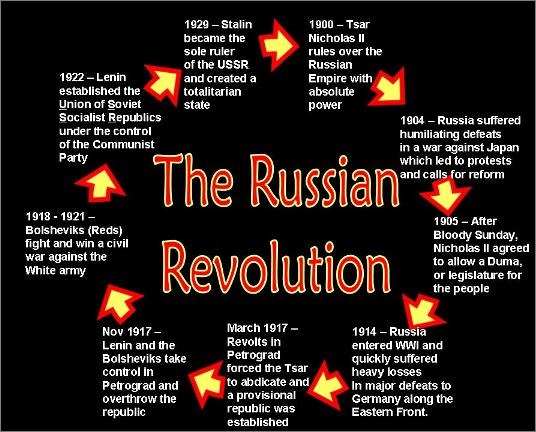
Lenin included 2 conditions for a successful revolution:
February and October Revolutions
Riots broke out in St. Petersburg for bread. Czar ordered troops to use force against these people but some of the troops refused to fire. Mob took over many public buildings and released prisoners from jail. The government advised Nicholas to set up a constitutional monarchy but he sent more troops to control the situation.
Ultimately, Czar was pressurized and he decided to give his throne to his little brother but he refused to accept it. Thus, the Russian monarchy came to an end. A new provisional government was set up under Alexander Kerensky but it failed very badly. The demands of the people were never met by the government and hence, it lost the support of the people.
Lenin, who was in exile came back to Russia under whose leadership, the Bolshevik Party clearly put forward to end the war and transfer lands to peasants. They also started a slogan "All Power to the Soviets".
Bolshevik was the only party that had clear politics on the non-Russian nationalists as Lenin believed: Russian empire is a prison of nations and no democracy can be established if all non-Russian nationalists are not given equal rights.
On 20th October, the Soviets finally attempted to seize power. Bolshevik Guards captured all the key points and arrested the provincial government. They were very disciplined. The whole coup came out as bloodless.
Russian Civil War
Soon the new state got into war when the army personals who were in favor of the Czar started an armed rebellion against the Soviet state. Many troops of different countries also became their allies.
By this time, the Red Army was able to control all lands under Czar empire. They were badly equipped and mainly consist of workers and peasants but they were able to defeat better trained and better-equipped soldiers.
A new economic plan was started by the state to build a technologically advanced economy at a rapid rate and end inequalities in society.
The idea "He that does not work neither shall eat" was accepted by a lot of people and it brought a new dignity in the labor class. Socialists all over the world organized campaigns to end Imperialism and Soviet Union was seen as a friend by colonies who were struggling for independence. Russia became the first country from Europe to support Independence.
Soon after the revolution, the government ended all the unequal treaties made by Czars with China. Moreover, they provided assistance to Sun Yat Sen for his struggle to unite China.

Share:

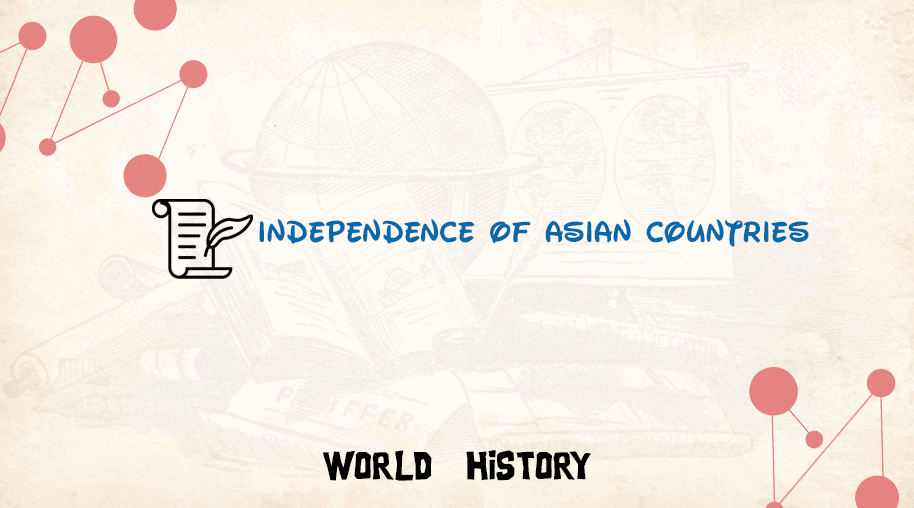
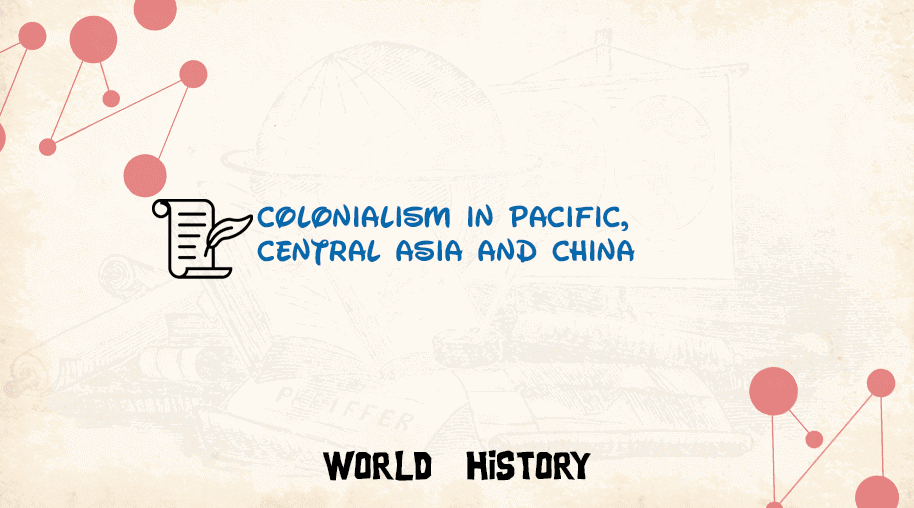
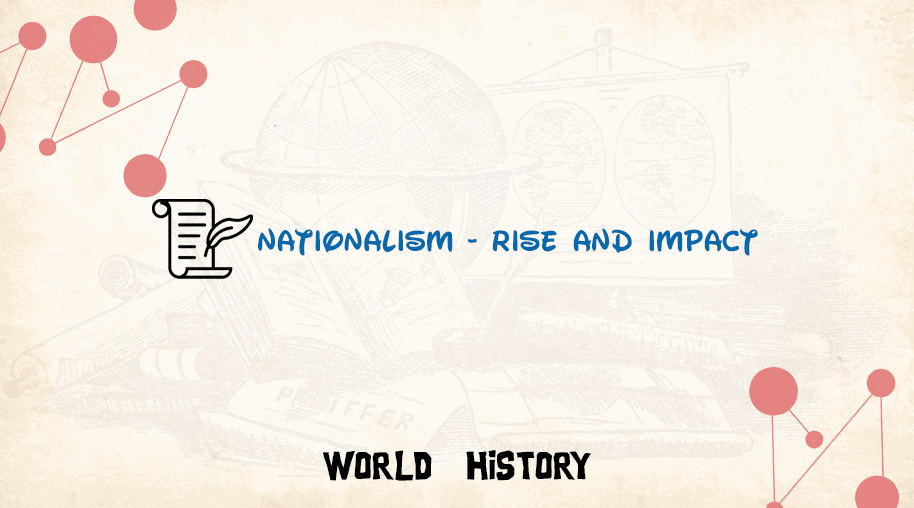
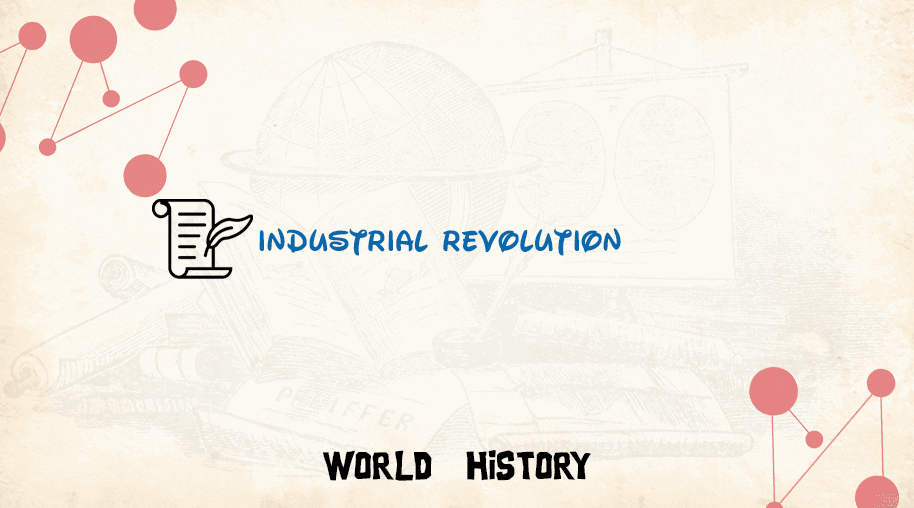


Comments
Waiting for your comments